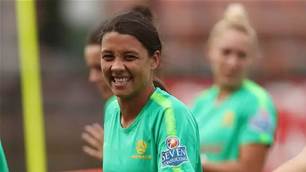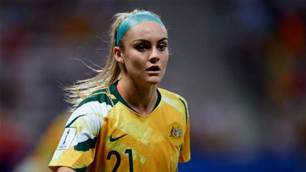Tempers flared overnight as Sam Kerr was overlooked for the three finalist spots for FIFA Women's Player of the Year. But how do her statistics compare with the finalists?
The analysis
Now that the smoke’s clearing, the real work begins. There were ten female nominees to be whittled down to three finalists, featuring only two others – the Netherland’s Vivianne Miedema and Lieke Martens – who had won an international tournament in 2017.
Given the lack of non-invitational, international tournaments beside EURO 2017, judgements were always going to weigh heavily on club performance.
Kerr finished second in the W-League top scorers tally, two goals behind Canberra United’s Ashleigh Sykes. After finishing the regular season in second place, Kerr also failed to score in the final series, as Perth eventually lost the Grand Final 2-0 to Melbourne City.
This noted, any indignation at Kerr’s statistics should have been put to rest by her end of season award tally – the Julie Dolan, Penny Tanner Media MVP and Goal of the Season awards ensuring Kerr’s performance was rightfully acknowledged as no less than phenomenal.
For her NWSL side, Sky Blue, results were somewhat similar. Sky Blue are currently sixth in their league and didn’t qualify for finals, but Kerr scored nine goals in nine appearances, with a shot conversion rate of almost 50%. She also won two out of six Player of the Month awards.
Most impressively, as of August 2017, she led the WSNL all-time scoring charts with 41 goals, seven ahead of her nearest rival.
Finally, Kerr scored seven goals in nine appearances for the Matildas in 2017. While she dominated the inaugural Tournament of Nations, she failed to find the net in any of the Matildas’ more prestigious Algarve Cup matches, as they finished in fourth place.
It’s worth mentioning here that goals – Kerr’s undoubted strength this year – have seemingly been of little significance in this year’s decision. Danish striker Pernille Harder scored nine international goals this year, top scored in the Algarve Cup and took Denmark to the final of Euro 2017, but was similarly overlooked for the Player of the Year finalists.
Related Articles

Kerr, fellow Matildas to be consulted in coach search

'Timing not right': Montemurro's verdict on Matildas vacancy













